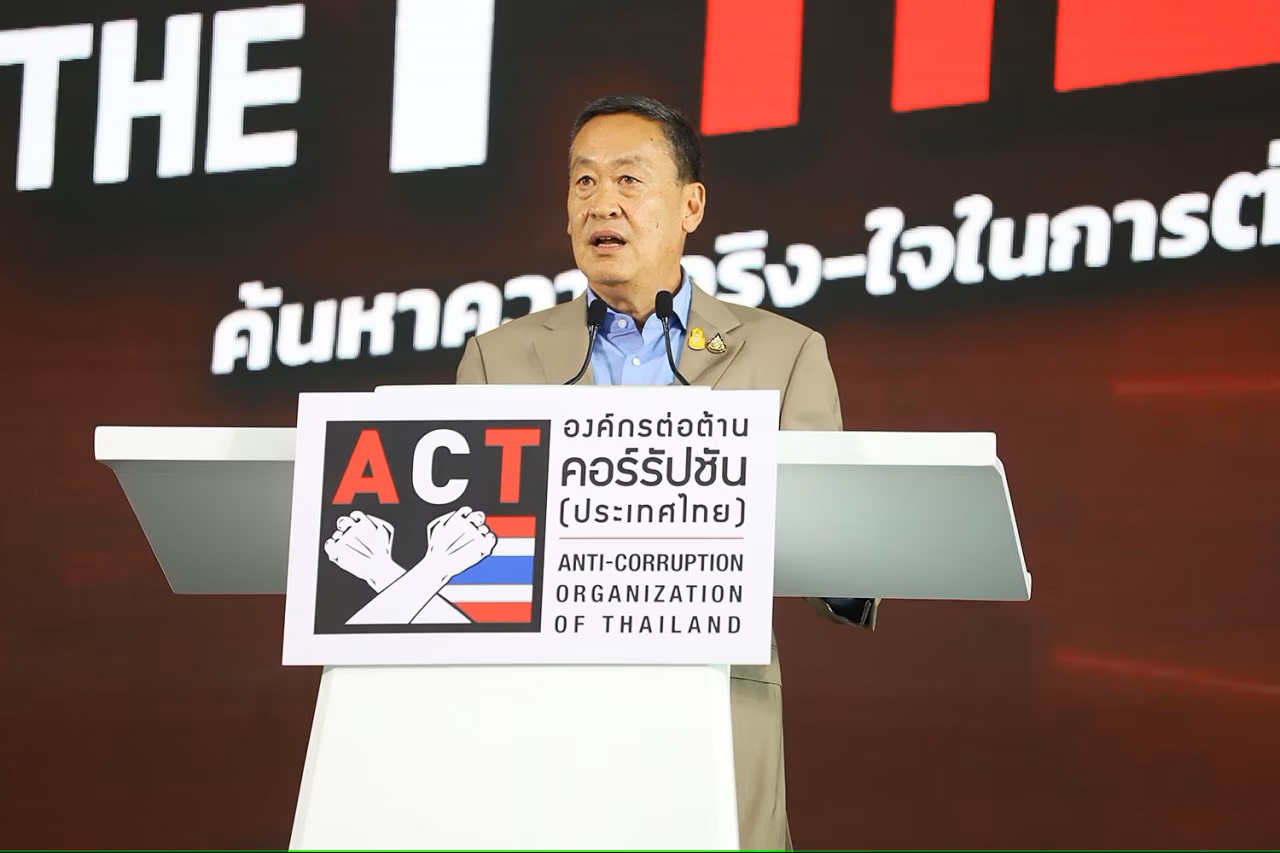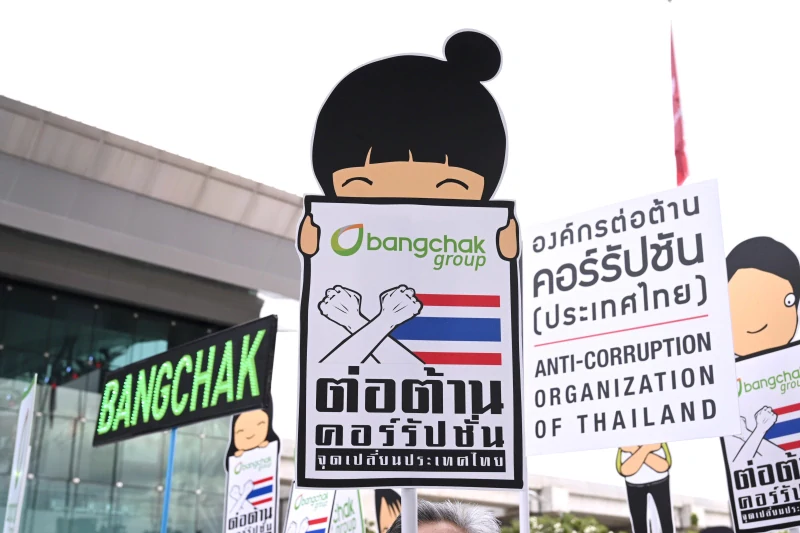Thailand has dropped seven points in Transparency International’s annual corruption index, ranking 108th out of 180 countries. The Corruption Perceptions Index reflects Thailand’s previous government under Gen. Prayut Chan-o-cha who ousted a democratically elected government promising to end corruption.
The Corruption Perceptions Index 2023, published on Tuesday, evaluates countries based on their perceived levels of public-sector corruption under the Prayut government, according to experts and businesses. Scores range from zero (the most corrupt) to 100 (the least corrupt).
Denmark (90 points), Finland, New Zealand, Norway, and Singapore ranked first through fifth in the 2023 study.
Thailand’s CPI score of 35 out of 100 fell from 36 in the previous poll, while gains achieved by other nations lowered Thailand’s overall ranking. In the last decade, the country’s highest CPI score was 38 in both 2014 and 2015.
The most recent statistics show a reversal from 2022, when the country moved nine positions to 101st from 110th.
Berlin-based According to Transparency International, the results of the 2023 poll indicate that most nations have made little to no progress in combating public sector corruption.
“The CPI global average stays at 43 for the twelfth consecutive year, with more than two-thirds of countries scoring below 50. “This indicates serious corruption issues,” it stated.
According to Transparency International, the world’s justice systems are failing to work properly.
“Both authoritarian regimes and democratic leaders undermining justice contribute to increasing impunity for corruption and, in some cases, even encourage it by removing consequences for wrongdoers,” according to the report.
Corruption in Thailand
Corruption is a persistent issue in Thailand, impacting both the governmental and private sectors. Despite these problems, the country has taken strong steps to eliminate corruption and promote openness.
Corruption synonym in Thailand takes several forms, including bribery, abuse of functions, and conflict of interest. The National Counter Corruption Commission (NCCC) and the Anti-Money Laundering Office (AMLO) play critical responsibilities in combating corruption on both a national and local level.
Furthermore, the private sector has come under scrutiny, with measures to combat private-to-public bribery and encourage fair competition.
Embracing Transparency and Accountability
Thailand has been leveraging the public and commercial sectors to prevent and eliminate corruption. The importance of true determination to combat corruption in the private sector has been emphasised, with the goal of reducing the cost of bribery for businesses and improving access for potential bidders.
Furthermore, encouraging public sector participation has been critical in reducing potential for bribery and corruption.
Thailand’s legal structure, particularly the Penal Code, addresses domestic and private bribery. The country has been aggressive in establishing procedures to detect signs of corruption and decrease opportunities for corrupt acts.
While there are particular rules governing public officials, there have also been initiatives to prevent private bribery by non-governmental persons and companies.
Thailand’s anti-corruption programmes have emphasised the significance of collaboration among government institutions, private businesses, and citizens.
Experts have exchanged insights and best practices for combating corruption, with a focus on raising public awareness and boosting openness. Thailand is working for long-term change and resilience in the face of corruption by going on a collaborative mission to combat it.
Thailand’s battle against corruption is an ongoing process characterised by proactive measures and coordinated efforts.
Thailand is making progress against corruption by harnessing the resources of the public and commercial sectors, embracing transparency, and creating strong anti-corruption frameworks.
Thailand is ready to continue its journey as a game changer in the battle against corruption, thanks to continued initiatives and a firm commitment to transparency and honesty.








